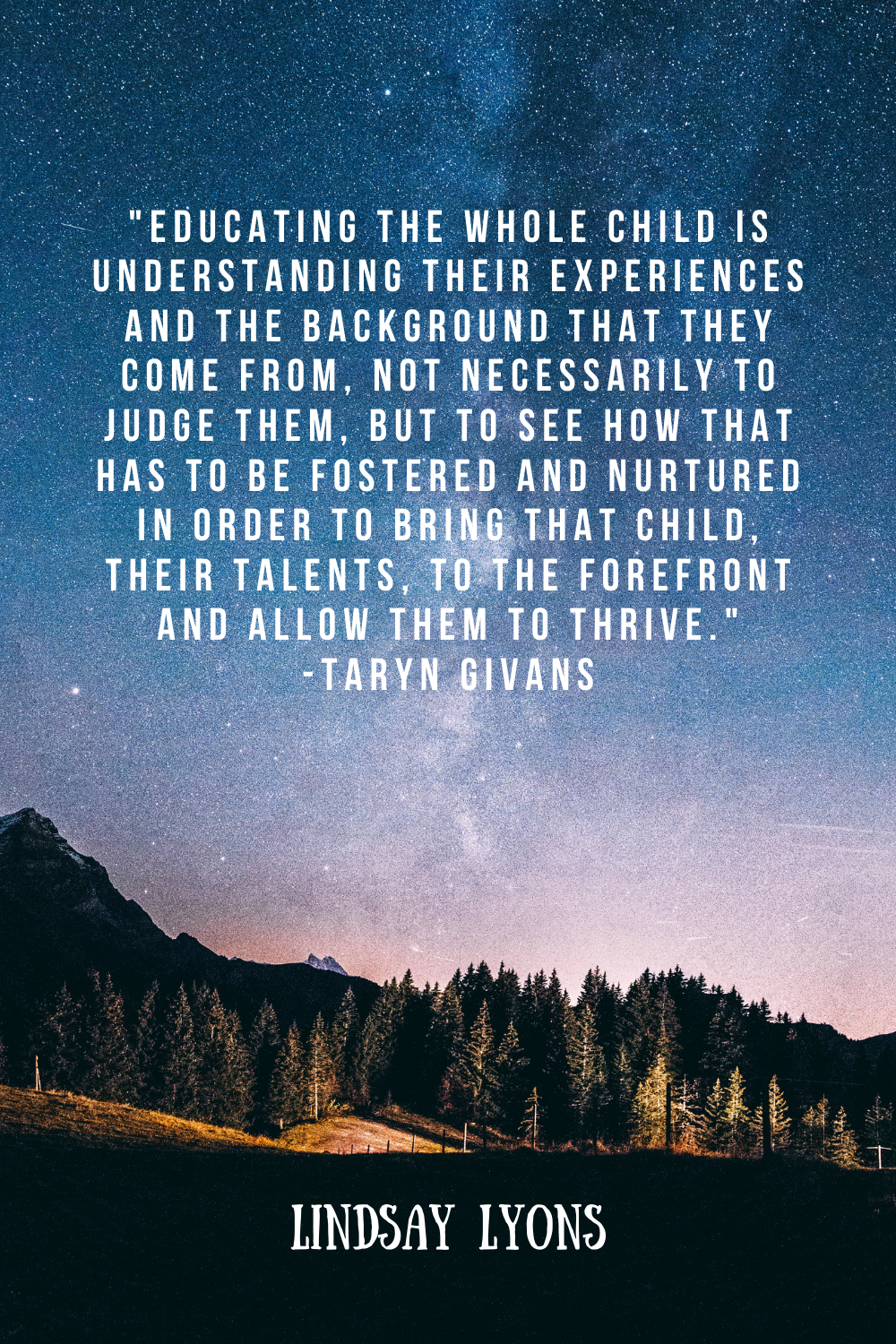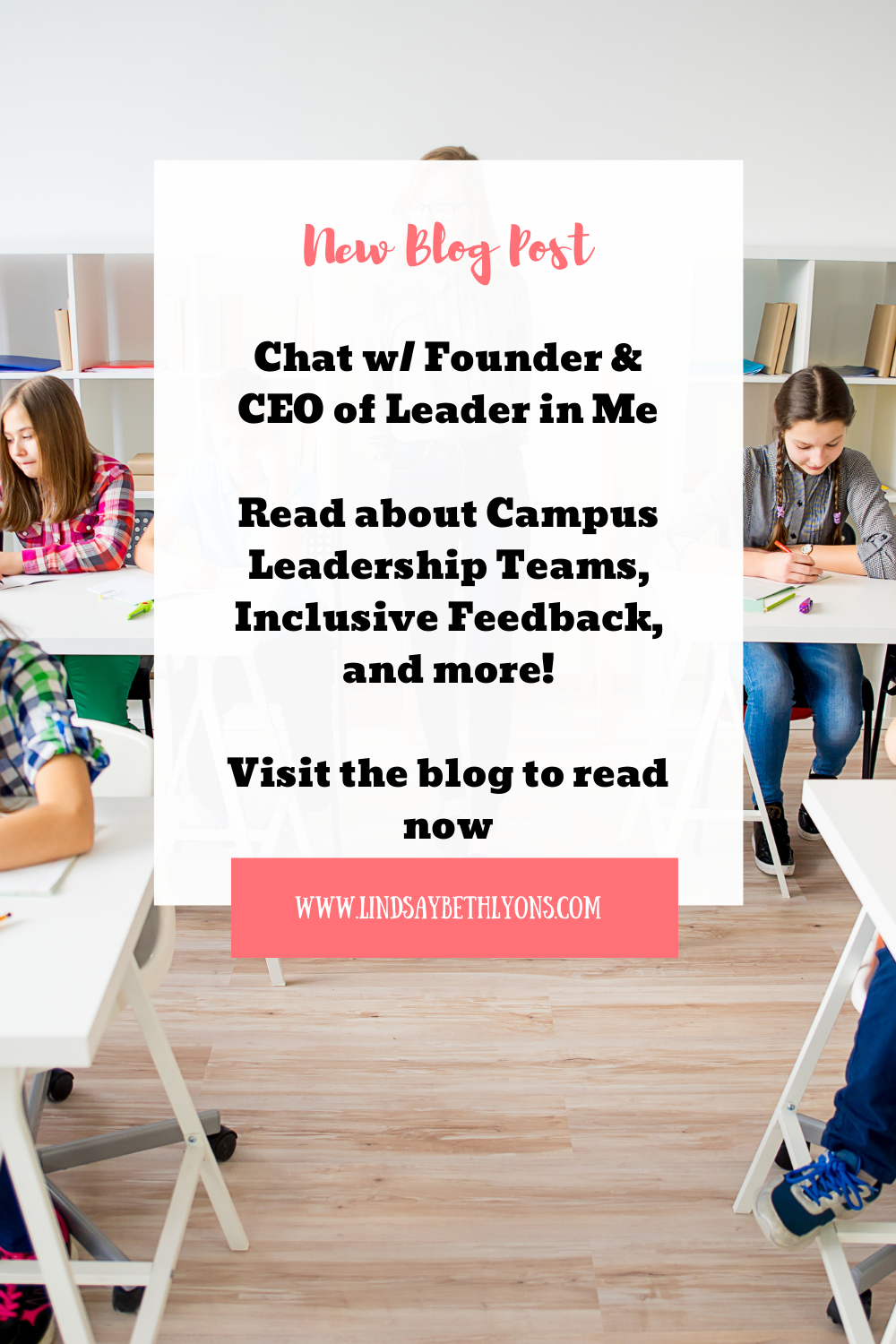|
Listen to the episode using the above player or by clicking the link to your preferred podcast platform below:

Taryn Givan lives in Texas and holds a Bachelor’s degree in elementary education from the University of Central Arkansas. She also holds a Master’s in Curriculum and Instruction from Texas A&M University and principal certification. She has served 19 years in the K-12 setting as a teacher, assistant principal, and adjunct professor. Now in her 20th year, Taryn is the Founder and CEO of Divergent Educational Consulting LLC as well as an independent educational consultant and service specialist with Better Lesson. She is a proud member of Delta Sigma Theta sorority. She enjoys dancing, reading, writing, listening to music, among other things. One of her greatest accomplishments is being a mother to a beautiful 19 year old and a wife to her husband. Her motivation each day stems from Galatians 6:9. Leader in Me and Campus Leadership Teams explained Leadership is something we can constantly redefine, especially when it comes to our students. The organization called the Leader in Me aims to empower more educators with practices that connect culture, academics, and leadership. They use methods like the 7 habits of highly effective people and social emotional learning to increase student confidence, give students more leadership skills, help school staff feel supported, and drive school achievements. They use Campus Leadership Teams to help carry out these frameworks and methods. Campus Leadership Teams are made up of the campus principal and key school leaders like administrators, counselors, academic support specialists, etc; They are responsible for the development, implementation, and monitoring of the targeted improvement plan, monitoring student performance, and determination of student interventions and support services. Not only do they develop educational policies for the school based on observation, data, and research, but they also make sure that there are resources available to support these changes. Communicating with your team There are benefits to collaborating with other school leaders on campus. When a leadership team brings on people with diverse experiences and identities, everyone in it can learn how certain parts of school policies or their school culture may be fine for that person in the group, but harmful for this other person and some students. The first thing these teams need to do is gather the information they need. These teams can instruct principals on how to listen to students of color and practice more inclusivity. When getting together with the other members in your group, you can do quick check-ins in the form of “huddles” and longer full meetings. Huddles can be done on Monday morning where you and the team huddle up in an open area. Each person goes around the circle going over anything that might’ve come up over the weekend and then announcing some key dates coming up that week. “Our huddles, just standing up in a circle, sometimes I go to my right, sometimes I go to my left, and we will go around—big rocks for the week, this is what I need from you, etc, all hearts clear, hands in the middle, go!” Make all children feel seen and heard Oftentimes, adults in school will only see children as an extension of the communities they come from. Taryn notes how teachers may look at a child and be unfair with how they measure their potential and gifts. School leaders need to do more to ensure that not only are students from all backgrounds accepted, but they are allowed to be whoever they want to. Kids are beyond capable when it comes to shared decision making! They know what they like, what’s interfering with their education, and what might be better. They have the potential to contribute amazing ideas about representation and diversity in schools whether they’re in elementary school or high school. Everyone can offer different perspectives because all our experiences are so unique. It’s all about bringing something new to the table. So if you want to make sure your Campus Leadership Team gets the right results, part of the information gathering should be getting direct feedback from students. “I think that if you want to learn how to best meet their needs, we have to involve the kids...In order for us to really have a mindset shift, we're going to have to make sure that we're bringing children to the table and giving them an opportunity to really share with us.” One of the methods that Leader in Me uses is the seven habits of highly effective people. You may have heard these habits in other contexts, but it is something that can be implemented in a school too. The seven habits are being proactive, beginning with the end in mind, put first things first, think win-win, seek first to understand then to be understood, synergize, and sharpen the saw. But keep in mind that it’s not enough to just have these habits live on a poster on a wall, they need to become part of the school culture. In meetings, use the same language that’s part of the Leader in Me program. If you want to be a school who practices the Leader in Me ways, you need to bring in the actual coaches from the organization so they can properly implement the curriculum and the culture. Be sure to do your own research going into this as well. It takes a commitment to get to those goals but it is so worth it! To continue the conversation, you can head over to our Time for Teachership Facebook group and join our community of educational visionaries. Until next time leaders, continue to think big, act brave, and be your best self.
0 Comments
Leave a Reply. |
Details
For transcripts of episodes (and the option to search for terms in transcripts), click here!
Time for Teachership is now a proud member of the...AuthorLindsay Lyons (she/her) is an educational justice coach who works with teachers and school leaders to inspire educational innovation for racial and gender justice, design curricula grounded in student voice, and build capacity for shared leadership. Lindsay taught in NYC public schools, holds a PhD in Leadership and Change, and is the founder of the educational blog and podcast, Time for Teachership. Archives
May 2024
Categories |




 RSS Feed
RSS Feed